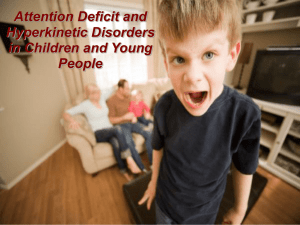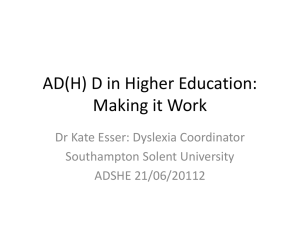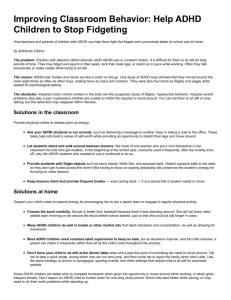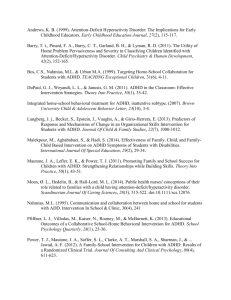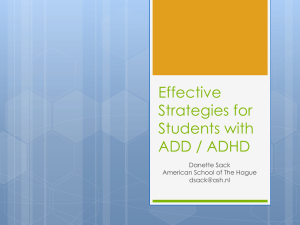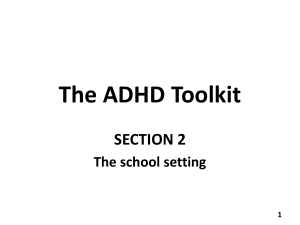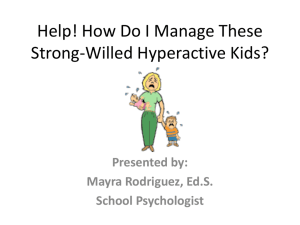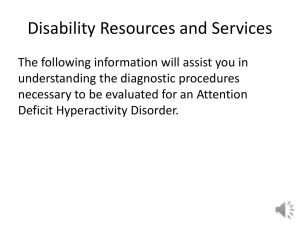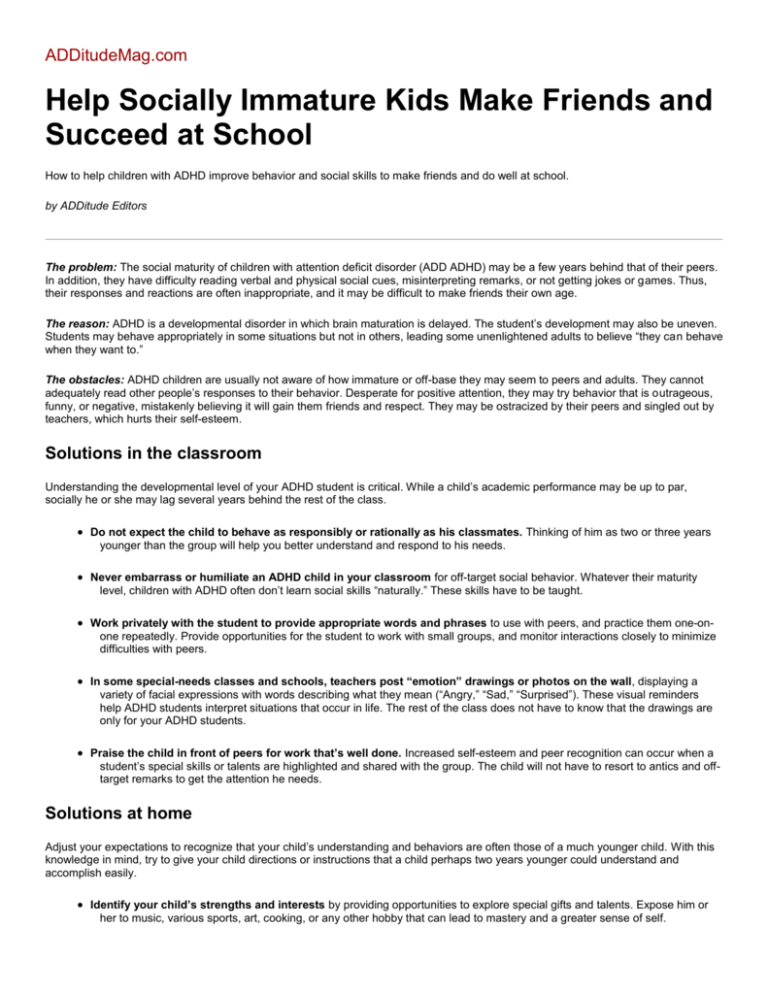
ADDitudeMag.com
Help Socially Immature Kids Make Friends and
Succeed at School
How to help children with ADHD improve behavior and social skills to make friends and do well at school.
by ADDitude Editors
The problem: The social maturity of children with attention deficit disorder (ADD ADHD) may be a few years behind that of their peers.
In addition, they have difficulty reading verbal and physical social cues, misinterpreting remarks, or not getting jokes or games. Thus,
their responses and reactions are often inappropriate, and it may be difficult to make friends their own age.
The reason: ADHD is a developmental disorder in which brain maturation is delayed. The student’s development may also be uneven.
Students may behave appropriately in some situations but not in others, leading some unenlightened adults to believe “they can behave
when they want to.”
The obstacles: ADHD children are usually not aware of how immature or off-base they may seem to peers and adults. They cannot
adequately read other people’s responses to their behavior. Desperate for positive attention, they may try behavior that is outrageous,
funny, or negative, mistakenly believing it will gain them friends and respect. They may be ostracized by their peers and singled out by
teachers, which hurts their self-esteem.
Solutions in the classroom
Understanding the developmental level of your ADHD student is critical. While a child’s academic performance may be up to par,
socially he or she may lag several years behind the rest of the class.
Do not expect the child to behave as responsibly or rationally as his classmates. Thinking of him as two or three years
younger than the group will help you better understand and respond to his needs.
Never embarrass or humiliate an ADHD child in your classroom for off-target social behavior. Whatever their maturity
level, children with ADHD often don’t learn social skills “naturally.” These skills have to be taught.
Work privately with the student to provide appropriate words and phrases to use with peers, and practice them one-onone repeatedly. Provide opportunities for the student to work with small groups, and monitor interactions closely to minimize
difficulties with peers.
In some special-needs classes and schools, teachers post “emotion” drawings or photos on the wall, displaying a
variety of facial expressions with words describing what they mean (“Angry,” “Sad,” “Surprised”). These visual reminders
help ADHD students interpret situations that occur in life. The rest of the class does not have to know that the drawings are
only for your ADHD students.
Praise the child in front of peers for work that’s well done. Increased self-esteem and peer recognition can occur when a
student’s special skills or talents are highlighted and shared with the group. The child will not have to resort to antics and offtarget remarks to get the attention he needs.
Solutions at home
Adjust your expectations to recognize that your child’s understanding and behaviors are often those of a much younger child. With this
knowledge in mind, try to give your child directions or instructions that a child perhaps two years younger could understand and
accomplish easily.
Identify your child’s strengths and interests by providing opportunities to explore special gifts and talents. Expose him or
her to music, various sports, art, cooking, or any other hobby that can lead to mastery and a greater sense of self.
Be a coach to your child by role-playing and rehearsing everyday situations and appropriate responses. Exhibit
appropriate behaviors yourself, and discuss with your child social situations in your own life and how you decided to
respond.
If possible, locate a social skills remediation group in your area and enroll your child so he can practice in a safe
environment.
Children with ADHD are often great playmates and babysitters to younger children. In such situations they can exercise
their positive caring traits while not being threatened by peer relationships that don’t match up.
Get involved in your child’s activities if the adults in charge don’t understand the reason for your child’s immaturity. Many
parents of ADHD kids volunteer to lead Scout troops, coach Little League, or supervise community service efforts to be with
their child.
Copyright © 1998 - 2007 New Hope Media LLC. All rights reserved. Your use of this site is governed by our
Terms of Service (http://www.additudemag.com/adhd/terms.html) and
Privacy Policy (http://www.additudemag.com/adhd/privacy.html).
ADDitude does not provide medical advice, diagnosis, or treatment. The material on this web site is provided for educational purposes only.
See additional information at http://www.additudemag.com/adhd/disclaimer.html
New Hope Media, 39 W. 37th Street, 15th Floor, New York, NY 10018

